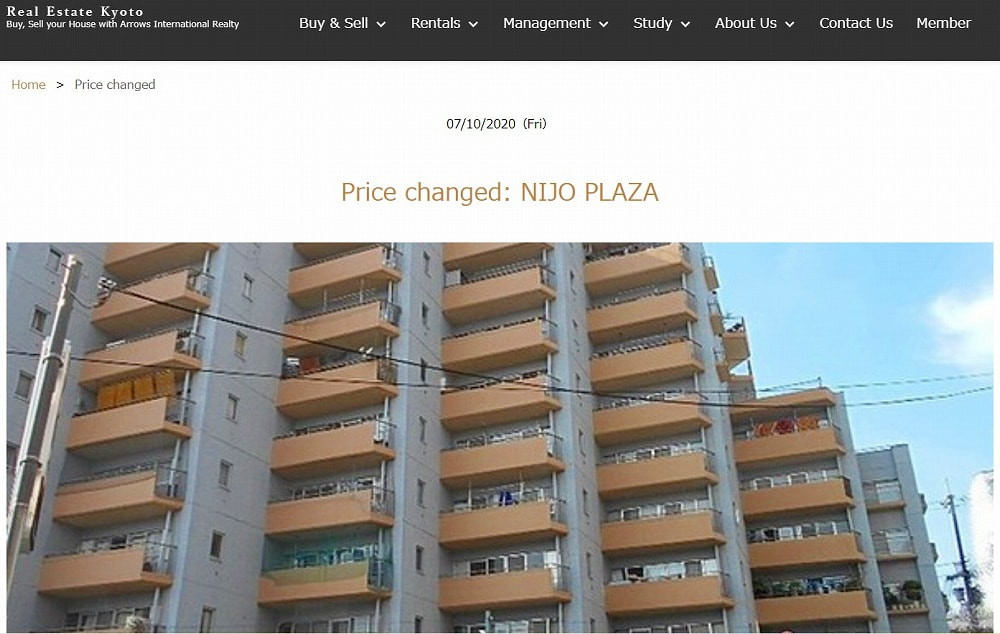Have you asked for negotiations when applying for rent?When we manage the building, we may be asked to negotiate the conditions when receiving an application for moving in. Today, we will explain what kind of negotiations are going on, what parts of negotiations are passing, and what parts are difficult to accept. Acceptance of negotiations depends on agreement between both Lessor and Lessee.First of all, the lease contract is concluded with the agreement of both the lessor and the lessee. It is not possible to conclude a contract based on only one request. Therefore, the fact that the negotiations on the conditions settle down is also a condition for the agreement of both lessor and lessee. In addition, the conclusion of the conditions is greatly related to supply and demand. For example, if many people want to rent the room, the demand will increase, and the lessor side can conclude the contract on favorable terms. On the other hand, when there are many suppliers on the off-season, it becomes possible for the lessee to freely choose the property, and it is possible to conclude a lease contract with more favorable terms for the lessee. What conditions are subject to negotiation?As mentioned above, the contract conditions fluctuate depending on supply and demand. For example, if the building is new and many people want to rent it, the rent will be high, and there are many cases where the condition of Key Money, which is a Japanese custom, is added. Or if there are no key money in the off season throughout the year, for example, if you sign a contract in the middle of the month, you will get free rent for fractional days less than 1 month. Whether the negotiation is successful or not, the following conditions are subject to negotiation. - rent - key money - Contract date (the standard payment date for rent, which usually occurs within one month from the application, is moved slightly backward) - Rent date (Contracts are signed on a regular schedule and the rent date is moved slightly behind) - Renewal fee However, the conditions below are unlikely or impossible to negotiate. - Maintenance fee -Fire insurance -Guarantee company fee -Agency fee -Contract renewal fee For example, a maintenance fee is an expense required to maintain and manage the entire building, and is also required to operate the building. It is also necessary to take out fire insurance, as it will compensate for damage caused by a fire or accidental fire from your neighbors. It may be possible to remove the use of a guarantor company, but it is a necessary procedure for the lessor to receive the rent under the current Lease and Lease Law, such as adding a security deposit and requiring a guarantor. About the effectiveness of negotiationFor example, let's say you verbally ask an agent to negotiate terms with the landlord, and sign a lease contract if the terms are met. If so, will the verbal convention become a contract item? Is it just a promise, do I have to keep it before I sign? Under Japanese civil law, a contract is considered to be formed by the agreement between the applicant and the approver. Therefore, as a general rule, a verbal agreement will also be sufficient and effective to complete the agreement. This is called a consent contract, and sales contracts and lease contracts correspond to this. However, there are some contracts that can only be concluded in writing, which is called a formal contract. In the case above, you negotiated the conditions on the premise of agreement, so if the owner accepts the content and if the agreement of the conditions is obtained, it becomes an oral agreement and the contract is actually valid. The negotiation is win-win for both partiesLiving in different cultures, customs, and languages often lead to different communication and ways of thinking. It is possible to comply with the law, but it is the best negotiation to collect the requests of both parties before each other, and each of them will be able to conclude the contract comfortably. There are many opportunities to expand from one relationship. Let's proceed so that each one can live a happy and pleasant environment.
There are many reasons why real estate sales prices may fall, but the biggest reason is when supply and demand are out of balance. Regardless of real estate, if the demand is high, the price goes up, and if not, the price goes down. However, real estate is one-of-a-kind item, and if the real estate has a scarcity value, the price will equilibrate, or the pace of price decline will slow. So from the standpoint of the seller, we would like to explain why the real estate is sold and why the price is lowered. Except for special cases such as auctions, the reason for selling real estate is because it is no longer used, sell it because it is not essential and can be sold high in the market, sell it because cash is absolutely necessary, sell real estate to relocate assets, or sell the real estate that was purchased to sell at a high price from the beginning. Let's look at each case. Sell real estate because the seller doesn't use it If the seller already owns his or her own residential property, but the property is acquired through inheritance, what will happen to the property? In the case of real estate inherited from their parents, they may have lived in their childhood. In that case, the building is probably over 50 years old. If demand for leasing is expected, it can be renovated and held as rent. However, if the refurbishment costs a lot of money, it will inevitably proceed to sale. The owner does not necessarily have to own the real estate and sells because it seems that it can sell high in the market If the owner finds that the property he/she is not planning to sell can actually be sold at a high price, if there is no compelling reason to own it, then owner sells the property. Owner sells real estate for cash It's similar to an auction of real estate, but if the owner can't afford to repay the loan or needs a lot of cash, owner sells own real estate and cashes it out. Sell real estate to relocate assets When an investor owns real estate for profit, it may replace the real estate after the end of its useful life. In this case, the real estate may be sold at a time when the yield decreases or the buyer's loan is easy to obtain. Sell the real estate owner bought to sell at a high price from the beginning This is a case where a real estate agent mainly sells as a business. For example, real estate purchased at a low price may be sold at a high price by resale, or real estate may be sold with added value such as renovation. Then, which of the above is the case where owner have to sell the real estate even if they lower the price? The seller who bought the real estate for resale originally wants to sell it first. There is no purpose in owning real estate, and the difference between the amount sold, the amount purchased and the amount renovated is a profit, and they operate the business by increasing the turnover ratio of purchase and resale. Therefore, it is easy to operate the business in the environment where the price is rising, but in a recession, the profit margin decreases and the turnover rate decreases, which makes it difficult to operate the business. Since there are many cases where real estate is purchased using loans, considering the interest rate burden, it is a good idea to let go at the price and timing when they can sell. Secondly, the seller who really needed cash, hurries to sell it, but there is always a price floor. Since the purpose of the sale is to cash the real estate and use it for payment, the price of cash in hand after paying the necessary expenses is the most important. In this case, the real estate is sold to the real estate agent. The price will be cheaper if agent buy it directly from the owner, but owner can get cash on the same day. Real estate agents do not care about things that general buyers are concerned about, such as defects in real estate. Therefore, here is the reason why real estate that does not appear in the table can buy at low cost by real estate agent. Next is a seller who will never use the real estate owned by inheritance. In this case, the real estate that is three or five years old from the inheritance is put up for sale in the market. Some real estate agents subscribe to a list of owners of real estate whose inheritance has changed, and they will send a letter to the new owner of the listing to appraise the sale. By sending a letter to the owner who is considering how to use the real estate, new owners feel like trying to sell at the assessed amount once. In this way, inherited real estate is often sold on the market. Sellers wishing to relocate their assets will consider lowering the price or suspending the sale. If the investor owns multiple real estate, owner will try to improve the financial condition by relocating to a more profitable real estate. They don't necessarily have to sell it, but in future plans, they will sell it at a convenient time. And the seller who originally did not need to sell, but tried to sell at a high price, would either hold the sale itself or keep the price and sell when a good buyer appears. In this case, the purpose is to sell the real estate at the desired price, so there is no need or reason to reduce the price. The price of real estate is formed by a mixture of the purpose of selling such real estate and the reason for lowering the price. On our real estate sales site, we will update the property whose price has dropped by dividing it into a new category. If you are interested in the trend of price cut real estate, please check here. In some cases, the price of real estate will drop due to the impact of COVID-19, but in many cases the price will not change at all depending on the purpose and reason of the sale. The price reduction of real estate starts from the seller who wants to sell the real estate in a hurry, but the price depends on the seller's financing strength. If you have any questions or if you are considering selling real estate, please contact us.
When buying real estate, we sometimes negotiate the price, but this time we will introduce the case that actually happened. I honestly don't know if the negotiations will work or not. There are reasons for the seller and reasons for the sale. If there is not one seller or the person who has the right to approve the price may differ, how to proceed depends on a case-by-case basis. Also, how much negotiation is possible changes depending on the negotiation price with respect to the selling price, the amount of negotiation and the negotiation rate. Instead of negotiating the price, we may negotiate the date of delivery or negotiate to leave the equipment. Therefore, negotiations are being negotiated under various conditions. If the real estate price is 9.8 million yen, the price range is often limited. In this case, price reductions of 100,000 yen to 200,000 yen often settle down. If the price is 200 million yen, it may be possible to negotiate a price of 20 million yen. On the other hand, there are cases where the price cannot be reduced if the selling price is at the lower limit due to the seller's convenience. In many cases, the negotiated price, the desire to leave the equipment, the contract and the payment schedule of the balance will be the basis for comprehensive judgment. As a rule of thumb, there are different trends for sellers in Osaka and Kyoto, and for individual sellers and vendors that are very different. If the individual in Kyoto is the seller, there is little range of price negotiations. If the seller is a vendor in Kyoto or Osaka, the rate of price reduction is large if the seller is in a hurry to sell in a vacant house or land, and if there is no need to rush to sell for investment, the rate of price reduction tends to be small. Also, it is generally difficult to negotiate prices when real estate prices are rising and there is demand, and negotiations tend to be easier when demand decreases. However, if the price is already low, negotiations will be difficult no matter how much the demand decreases. In April and May, there was little real estate movement and it was in a stalemate. But in June, inquiries and visits are gradually seen for sale and rent. We think that there is a range of price negotiations because the real estate owned by the agents needs to be sold. However, since there is no need to rush to sell the properties by individual, the price has not fallen at the moment and we don't think there will be much drop in price in the future. Although real estate prices may fall in the future, we think it will be limited to properties that require sale. Let's look at the whereabouts of the market a little more.
|
Details
AuthorArrows International Realty Corp. Archives
June 2023
Categories
All
|



 RSS Feed
RSS Feed